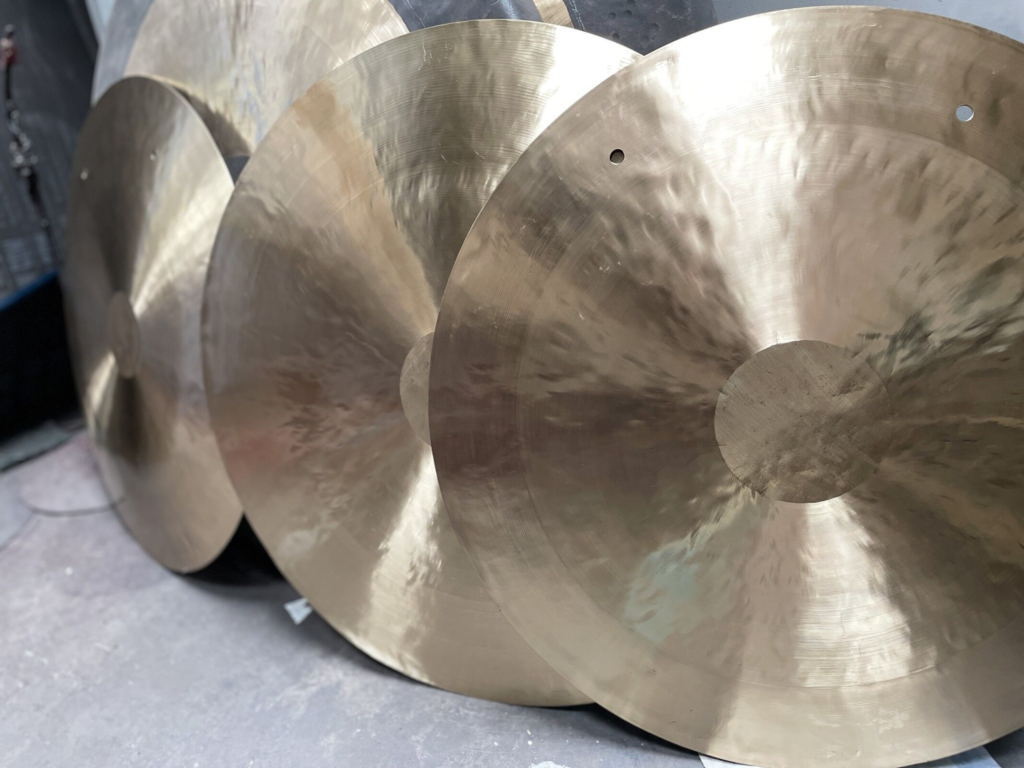Brass gongs are beautiful instruments that produce rich, resonant sounds. To ensure they remain in excellent condition and continue to deliver their signature tones, proper maintenance is essential. This guide provides practical tips for maintaining your brass gong, ensuring its longevity and optimal performance.

Understanding Your Brass Gong
Before diving into maintenance, it’s important to understand the materials and construction of your brass gong. Most gongs are made from a combination of metals, including bronze and brass, which can develop a patina over time. This natural aging process can enhance the gong’s character but may also require some care to maintain its appearance and sound quality.
Importance of Regular Maintenance
Regular maintenance not only preserves the aesthetic appeal of your gong but also prevents damage that could affect its sound. Neglecting maintenance can lead to corrosion, dirt buildup, and other issues that compromise the instrument’s integrity.
Cleaning Your Brass Gong
Cleaning your brass gong is a straightforward process that should be done regularly to maintain its shine and sound quality. Here are some effective cleaning methods:
Light Cleaning
For light cleaning, use a soft, dry cloth to wipe down the surface of the gong. This will remove dust and fingerprints without damaging the finish.
- Materials Needed: Soft cotton cloth or microfiber cloth.
- Method: Gently rub the surface in circular motions to lift away dirt. Avoid using abrasive materials that could scratch the brass.
Deep Cleaning
For more thorough cleaning, especially if your gong has accumulated grime or tarnish, follow these steps:
- Prepare Your Workspace: Lay down a protective covering on your work surface to avoid scratches.
- Use Mild Soap: Mix warm water with a few drops of mild dish soap. Dampen a soft cloth in this solution, wring it out, and gently wipe the gong’s surface.
- Rinse and Dry: After cleaning with soap, use a separate damp cloth to rinse off any soap residue. Immediately dry the gong with a clean, dry cloth to prevent water spots.
- Polishing: For added shine, consider using a metal polish specifically designed for brass. Apply it sparingly with a soft cloth and buff gently until you achieve the desired shine.
Avoiding Harmful Chemicals
When cleaning your brass gong, avoid harsh chemicals or abrasive cleaners that can damage the finish or alter the sound quality of the instrument. Always test any cleaning product on a small, inconspicuous area first to ensure it does not cause discoloration or damage.
Preventing Corrosion
Brass is susceptible to corrosion if not properly cared for. Here are some preventative measures:
- Store Properly: When not in use, store your gong in a protective case or cover it with a soft cloth to keep dust and moisture at bay.
- Control Humidity: High humidity can accelerate corrosion. Keep your gong in a climate-controlled environment where humidity levels are stable.
- Regular Wiping: After each use, wipe down your gong with a soft cloth to remove any moisture or oils from handling. This simple step can significantly reduce the risk of corrosion.
Handling Your Gong
Proper handling is crucial for maintaining your brass gong’s condition:
- Use Care When Transporting: Always transport your gong in a padded case to protect it from physical damage during travel.
- Avoid Direct Sunlight: Prolonged exposure to sunlight can fade finishes and cause warping in some materials. Store your gong away from direct sunlight when not in use.
- Be Mindful of Temperature Changes: Sudden temperature changes can cause materials to expand or contract, potentially leading to cracks or warping. Avoid placing your gong near heat sources or in extremely cold environments.
Regular Inspections
Conduct regular inspections of your brass gong to identify any potential issues early on:
- Check for Damage: Look for dents, scratches, or signs of wear that could affect sound quality. Address any damage promptly by consulting a professional if necessary.
- Inspect Hardware: If your gong has attached hardware (like stands or mallets), ensure they are secure and free from rust or corrosion.
Sound Quality Maintenance
The sound quality of your brass gong is paramount. Here are some tips to maintain its acoustic properties:
- Keep It Clean: Regular cleaning helps maintain sound clarity by preventing buildup that can muffle tones.
- Avoid Over-Cleaning: While keeping your gong clean is important, over-cleaning can remove desirable patina that contributes to its unique sound character. Allow some natural aging while ensuring it remains functional.
- Use Appropriate Mallets: The type of mallet used can significantly impact sound production. Experiment with different mallet types (hard vs. soft) to find what best suits your playing style and desired sound.
Conclusion
Maintaining your brass gong requires regular cleaning, careful handling, and preventative measures against corrosion. By following these tips, you can ensure that your instrument remains beautiful and produces high-quality sound for years to come. Remember that each piece has its own character; embrace the natural aging process while keeping it well cared for. Enjoy making music with your brass gong!
